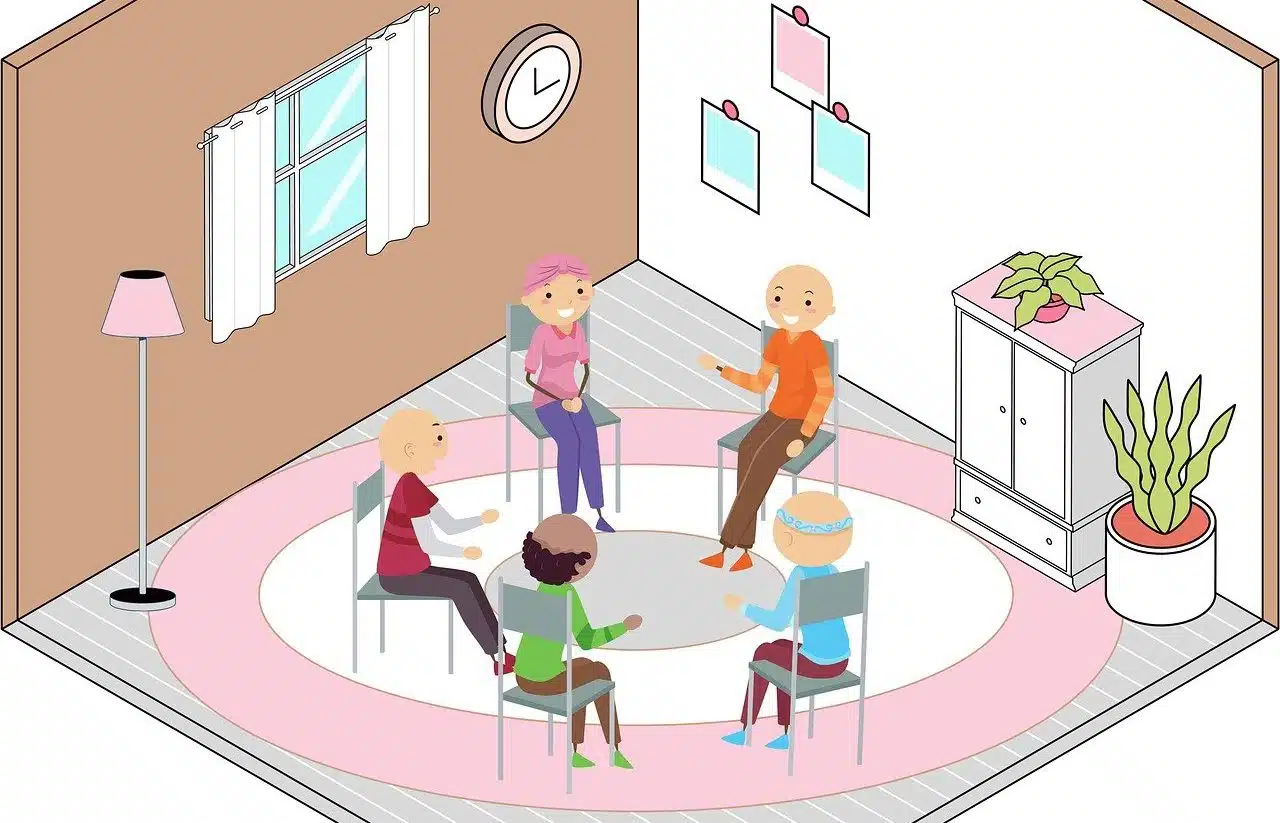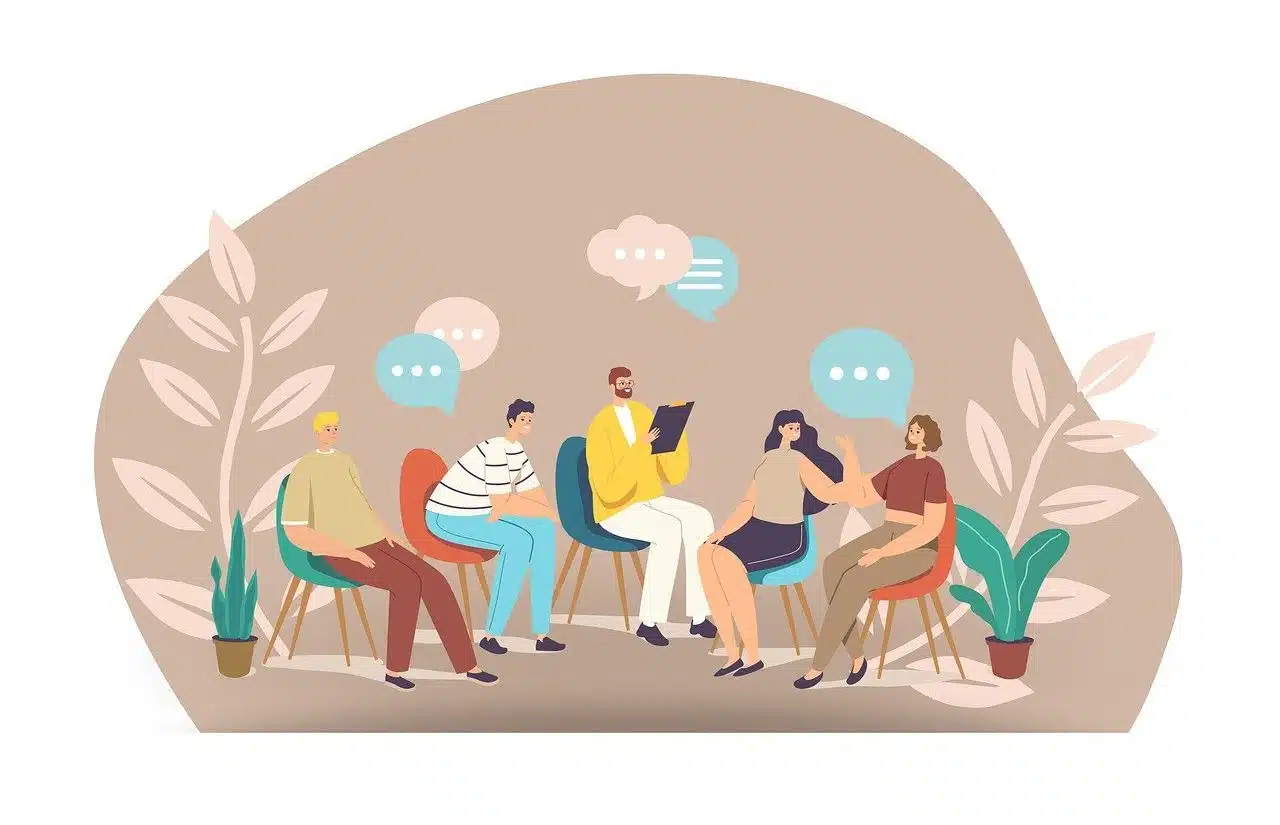
Group therapy is beneficial for people who are going through grief, suffer from a disorder or need therapeutic support to cope with situations of stress or chronic pathologies, for example.
Group therapy is a tool applied in the field of mental health that has therapeutic purposes, is guided by someone who specializes in psychotherapy and encompasses more than two individuals at a time (thus transcending the format of couples therapy ). .
It consists of meetings coordinated by a moderator or group facilitator in which different people listen to and accompany each other, without focusing attention on someone in particular as occurs in individual therapy , where the approach is personalized. These are spaces to share experiences or personal problems that can be useful for self-knowledge , the evolution of each subject, enhancing skills related to interpersonal ties , understanding certain realities and achieving improvements with respect to the quality of life .
Taking advantage of this modality is suggested to those who suffer from trauma , face grief , are diagnosed with specific diseases ( addictions , cancer , depression , etc.), need to strengthen or achieve competencies associated with social skills or have developed problems of insecurity or self-esteem , for example. . They are also valid in cases where personal work is required regarding anger or stress management, personality disorders , etc.
Types of group therapy
There are multiple types of group therapy , each with features that allow them to be differentiated in terms of size, organization and composition, among other variables.
Some of these group treatments and workshops are small in size (those that admit up to ten participants), while others are larger groups (with more productivity, conducive to establishing an internal division of tasks and subgroups).
There are also homogeneous groups (members of similar socioeconomic level, age, problems) and heterogeneous groups (members with different characteristics or grouped based on dissimilar criteria).
Another alternative to consider is dynamic group therapy (with the focus on the interactions that occur between attendees to offer support and stimulate personal growth and communication without prejudice or conditioning).
Similarly, you can find psychotherapies that work with open groups (authorizing the attendance of new participants, without a fixed number of attendees or obligation to attend) and others that have a closed format (made up of the same people from the beginning to the end). end of the process).
It is also interesting to know about the existence of group cognitive-behavioral therapy , self-help groups , group psychotherapy for chronic illnesses, and group counseling . It should not be overlooked, either, that in a wide variety of cities there are group therapy services for children, others that are dedicated to group therapy for adolescents , and other networks aimed at adults .

Group dynamics promote social integration, knowledge and connection between participants, mutual understanding and communication.
Group dynamics
In the sessions, the therapist in charge usually proposes experiential exercises and group dynamics in order to promote self-knowledge , introspection , cohesion , transmission of information , active listening , group feedback , catharsis and collective enrichment .
A frequently used group dynamic uses the psychodrama method, which invites people to act or recreate situations that distress, generate concern or block. By interpreting them with the body and giving them voice, these conflicting circumstances or issues can be better visualized, analyzed and resolved effectively through emotional release and understanding of certain behavioral patterns or internal conflicts .
Presentation dynamics are also distinguished and applied (oriented towards knowledge and identification among group members, especially at the beginning of the planned series of sessions), dynamics designed for conflict resolution and others that stimulate relaxation and relief of anxiety. tensions.
Other constructive resources within group therapies revolve around instructions aimed at self-affirmation or psychomotor training , to describe other possibilities.

Descriptive, constructive and positive feedback is useful to stimulate beneficial changes and enhance desirable behaviors or habits.
Advantages of group therapy
There are several advantages or benefits associated with group therapy .
First of all, it gives each patient the role of an active subject capable of being something more than someone who is going through a problem or suffering. In this sense, each assistant from their experience and through their testimony can help and motivate others and, at the same time, has the possibility of feeling accompanied, listened to and helped in their own suffering.
It also promotes the development of an extensive and strong support network capable of guaranteeing containment and support in difficult times, in addition to inciting a sense of belonging that is effective in calming grief , fears , and discouraging ideas or feelings of loneliness or social incomprehension. .
It is even a good space to open your mind , modify thoughts, break down prejudices or limiting beliefs and change a point of view. The sessions can also serve as an incentive for participants to want to progress, improve or better themselves.
